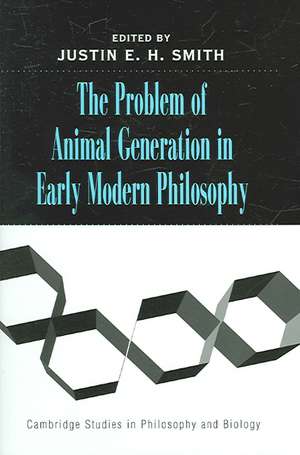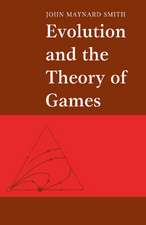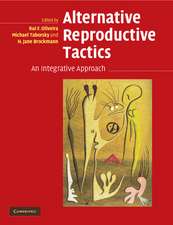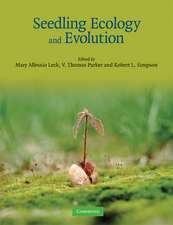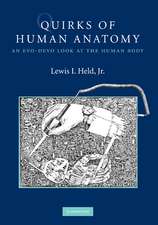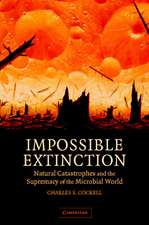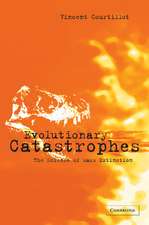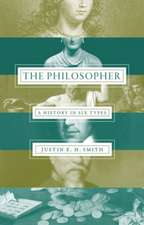The Problem of Animal Generation in Early Modern Philosophy: Cambridge Studies in Philosophy and Biology
Editat de Justin E. H. Smithen Limba Engleză Hardback – 21 mai 2006
| Toate formatele și edițiile | Preț | Express |
|---|---|---|
| Paperback (1) | 357.89 lei 6-8 săpt. | |
| Cambridge University Press – 12 sep 2012 | 357.89 lei 6-8 săpt. | |
| Hardback (1) | 479.78 lei 6-8 săpt. | |
| Cambridge University Press – 21 mai 2006 | 479.78 lei 6-8 săpt. |
Din seria Cambridge Studies in Philosophy and Biology
- 11%
 Preț: 617.45 lei
Preț: 617.45 lei -
 Preț: 278.41 lei
Preț: 278.41 lei -
 Preț: 292.69 lei
Preț: 292.69 lei - 14%
 Preț: 903.74 lei
Preț: 903.74 lei -
 Preț: 315.54 lei
Preț: 315.54 lei -
 Preț: 417.46 lei
Preț: 417.46 lei - 14%
 Preț: 757.37 lei
Preț: 757.37 lei -
 Preț: 299.82 lei
Preț: 299.82 lei -
 Preț: 208.50 lei
Preț: 208.50 lei -
 Preț: 417.84 lei
Preț: 417.84 lei -
 Preț: 390.04 lei
Preț: 390.04 lei - 11%
 Preț: 704.66 lei
Preț: 704.66 lei -
 Preț: 279.48 lei
Preț: 279.48 lei - 11%
 Preț: 417.38 lei
Preț: 417.38 lei -
 Preț: 289.01 lei
Preț: 289.01 lei -
 Preț: 232.63 lei
Preț: 232.63 lei -
 Preț: 375.68 lei
Preț: 375.68 lei -
 Preț: 321.65 lei
Preț: 321.65 lei -
 Preț: 252.30 lei
Preț: 252.30 lei - 11%
 Preț: 423.22 lei
Preț: 423.22 lei -
 Preț: 272.36 lei
Preț: 272.36 lei -
 Preț: 284.39 lei
Preț: 284.39 lei -
 Preț: 323.95 lei
Preț: 323.95 lei - 11%
 Preț: 682.91 lei
Preț: 682.91 lei - 11%
 Preț: 541.80 lei
Preț: 541.80 lei - 11%
 Preț: 693.51 lei
Preț: 693.51 lei - 11%
 Preț: 693.89 lei
Preț: 693.89 lei - 11%
 Preț: 453.71 lei
Preț: 453.71 lei - 11%
 Preț: 437.40 lei
Preț: 437.40 lei - 14%
 Preț: 685.74 lei
Preț: 685.74 lei -
 Preț: 323.65 lei
Preț: 323.65 lei -
 Preț: 355.74 lei
Preț: 355.74 lei -
 Preț: 393.91 lei
Preț: 393.91 lei
Preț: 479.78 lei
Preț vechi: 539.07 lei
-11% Nou
Puncte Express: 720
Preț estimativ în valută:
91.80€ • 96.11$ • 75.96£
91.80€ • 96.11$ • 75.96£
Carte tipărită la comandă
Livrare economică 08-22 aprilie
Preluare comenzi: 021 569.72.76
Specificații
ISBN-13: 9780521840774
ISBN-10: 0521840775
Pagini: 472
Dimensiuni: 152 x 229 x 30 mm
Greutate: 0.76 kg
Editura: Cambridge University Press
Colecția Cambridge University Press
Seria Cambridge Studies in Philosophy and Biology
Locul publicării:New York, United States
ISBN-10: 0521840775
Pagini: 472
Dimensiuni: 152 x 229 x 30 mm
Greutate: 0.76 kg
Editura: Cambridge University Press
Colecția Cambridge University Press
Seria Cambridge Studies in Philosophy and Biology
Locul publicării:New York, United States
Cuprins
Part I. The Dawning of a New Era: 1. The comparative study of animal development: from Aristotle to William Harvey J. G. Lennox; 2. Monsters, nature, and generation from the Renaissance to the Early Modern period: the emergence of medical thought Annie Bitbol-Hesperies; Part II. The Cartesian Programme: 3. Descartes' experiments and the generation of animals Vincent Aucante; 4. Imagination and the problem of heredity in Cartesian embryology Justin E. H. Smith; Part III. The Gassdendian Alternative: 5. The soul as vehicle for genetic information: Pierre Gassendi's account of inheritance Saul Fisher; 6. Atoms and minds in Walter Charleton's theory of animal generation Andreas Blank; Part IV. Second-Wave Mechanism and the Return of Animal Souls, 1650–1700: 7 Animal generation and substance in Sennert and Leibniz Richard T. W. Arthur; 8. Malebranche on animal generation: pre-existence and the microscope Andrew J. Pyle; 9. Spontaneous and sexual generation in Ann Conway's Principles Deborah Boyle; 10 'Animal' as category: Pierre Bayle's 'Rorarius' Dennis Des Chene; Part V. Between Epigenesis and Pre-Existence: The Debate Intensifies, 1700–70: 11. Method and cause: the Cartesian context of the Haller-Wolff debate Karen Detlefsen; 12. Soul power: G. E. Stahl and the debate on animal generation Francesco Paolo di Ceglia; 13. Charles Bonnet's neo-Leibnizian theory of organic bodies Francois Duchesneau; Part VI. Kant and His Contemporaries on Development and the Problem of Organized Matter: 14. Kant's early views on epigenesis: the role of Maupertuis John Zammito; 15. Blumenbach and Kant on the formative drive: mechanism and teleology in nature Brandon Look; 16. Kant and the speculative sciences of origins Catherine Wilson; 17. Kant and evolution Michael Ruse.
Recenzii
"This rich volume aims at helping historians “to gain a fresh perspective on some of the basic problems of early modern philosophy,” by studying how these problems manifest themselves in discussions of animal generation.... the volume can easily be recommended to historians of early modern philosophy and experts alike."
--S a n d e r W. d e B o e r, Journal of the History of Philosophy
--S a n d e r W. d e B o e r, Journal of the History of Philosophy
Descriere
This book examines the early modern science of generation, analyzing its influences on contemporary philosophical questions.
